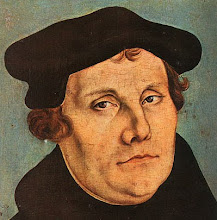Student of the Senate EMK: A Lifelong Learner
A reflection on a public servant August 31, 2009
by Michael L. Cooper-White
mcooper@ltsg.edu
I found myself surprised at the depth of emotion that welled up as I joined millions of others around the world watching the funeral of Edward M. Kennedy. My generation and younger ones have never known an American political theater without one or another Kennedy playing a major role on the stage. Hearing of so many common folk whose lives were touched in a personal way by the gregarious Senator from Massachusetts, I could readily identify. For 35 years ago, when I was a seminary intern serving with the besieged Evangelical Lutheran Church in Chile, we knew that Ted Kennedy’s office was closely watching and monitoring human rights abuses at the hand of the Pinochet dictatorship. After I returned to the U.S. and the Seminary, when Lutheran Bishop Helmut Frenz, by then exiled from Chile, had difficulty traveling to Washington for an event LTSG helped sponsor, Kennedy’s office intervened and a visa was approved in short order.
Thousands of such vignettes are being told across the nation and around the world in these days when many of us must adjust to the changed landscape of the United States Senate, where one named Kennedy loomed so large on the horizon for nearly four decades. Not without continuing critics, who are surely justified in continuing to hold him accountable for sins of youth that took a woman’s life and damaged reputations and careers of others, Kennedy is nevertheless remembered as a champion for the poor. There can be no full and complete redemption short of the resurrection, in which “Teddy” clearly believed fervently. His words and actions in later years gave evidence of true repentance and deep remorse, thereby rebalancing in some measure the lifetime record, which will, nevertheless, on this side of eternity continue to bear huge stains.
Beyond the many memories shared by his family, friends, colleagues and constituents, however, I think what has most surprised me is learning of his recent efforts to establish a study center that will encourage political scientists, historians and others to engage in ongoing serious scholarship about the evolution and current work of the United States Senate. As the second-longest serving senator, didn’t Ted Kennedy know all there was to know? By his own testimony, surely not. And therein may have resided the secret of his enormous influence, including his unequaled ability to introduce and garner votes for legislation he deemed critical. He remained a lifelong learner! He recognized that even a small community of 100 souls is an endlessly fascinating place, with a history that informs its present modus operandi, and a future that will be shaped by those who take seriously its current institutional dynamics and the lives of those who are the players on its stage.
While many in churchly circles tend to look askance at “politicians,” I think we who serve in the sphere of divine things might learn a great deal from this and other servants whose callings are amidst the hurly-burly of the public arena. Pastors who think they have grasped all there is to know about a parish after a couple years or so may quickly grow out of touch with their faith communities. Among other traits, teachers and professors who stay “ever-green” in their teaching and mentoring do so because they really believe they learn more from their students than the other way around. “Burnout” is less likely to occur if one is always on the hunt for new intellectual fuel and fodder, which can be as nearby as a next-door neighbor or new colleague across town.
I’d like to learn from your experiences as a lifelong learner. Where do you find new insights? What in your community’s history helps you offer creative leadership and get things done today? Are some new “laws” or rules for relating to one another needed in your place, and if so how are you going about getting them enacted?


0 Comments:
Post a Comment
<< Home